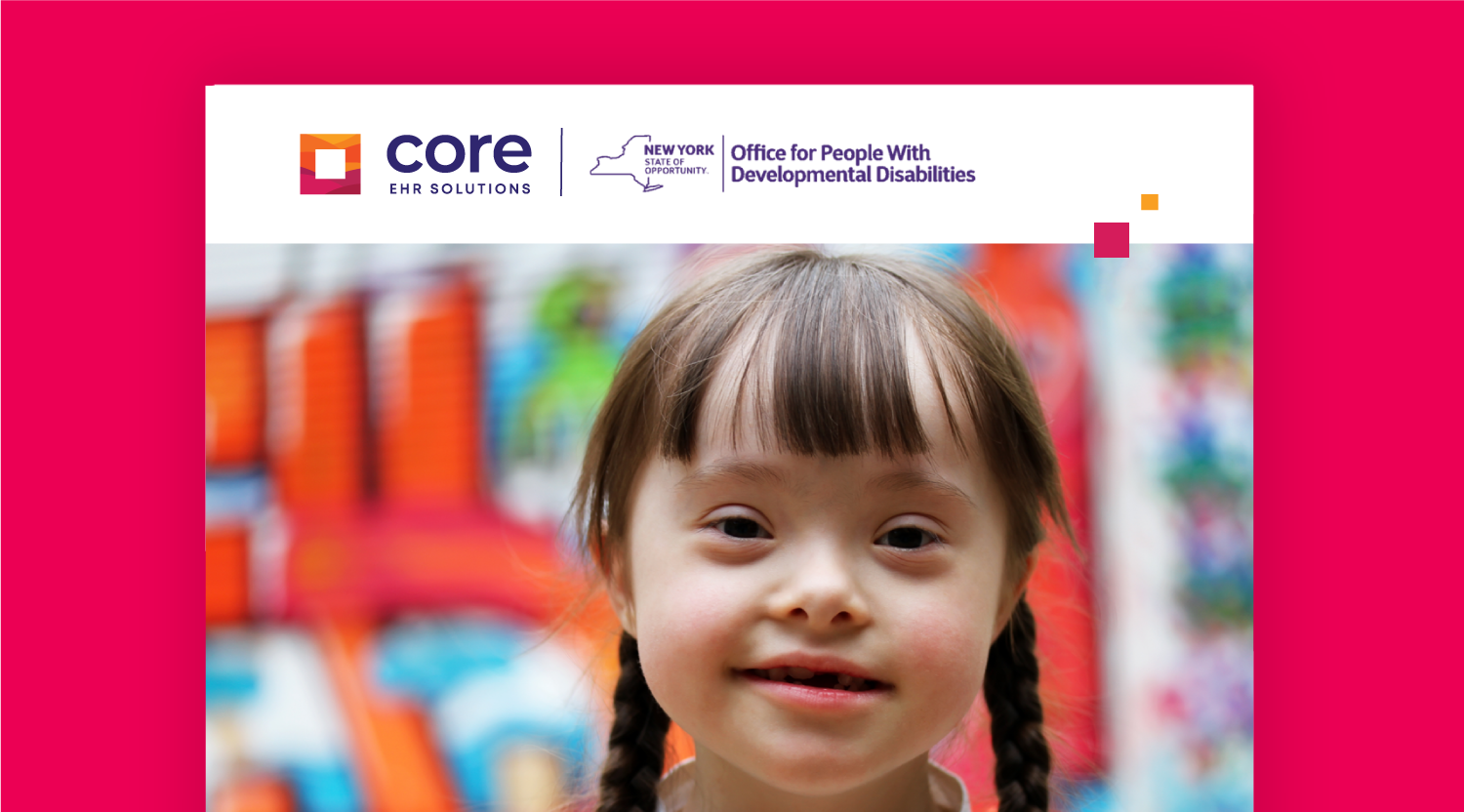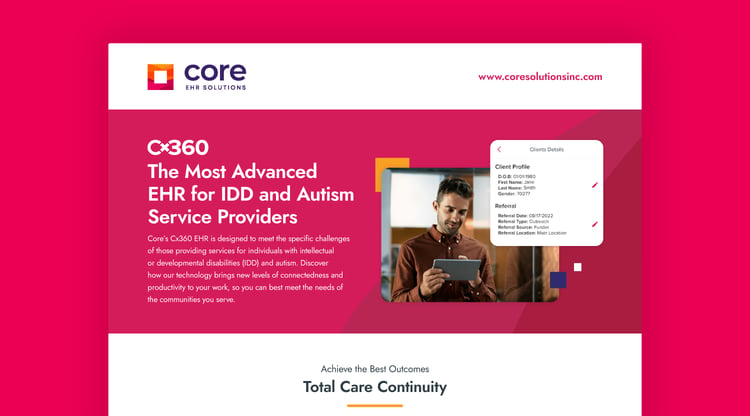Intellectual and Developmental Disabilities (IDD)
IDD Software Built for Providers and the People They Serve
For IDD agencies seeking a smarter way to manage care and operations, Core delivers modern, AI-enabled solutions grounded in proven best practices. Purpose-built for the IDD community, these tools support person-centered planning, measurable outcomes, and seamless coordination of care while reducing administrative burden. Core helps providers serving clients with IDD, including autism spectrum disorders (ASD), create and track life and service plans, share securely across the interdisciplinary team, and engage individuals and families through connected technology.
By partnering with Core, IDD organizations gain technology designed for today and adaptable for what comes next.







Core IDD Solutions: Powering Work That Matters
Intuitive tools support direct support professionals (DSPs) by streamlining documentation, assessments, and goal tracking. With preconfigured templates and workflows, as well as the ability to develop your own ideal forms and models, staff can document progress toward valued outcomes more efficiently. Built-in task triggering ensures no step is missed, with automated scheduling and clinical process tracking to keep everyone aligned. Mobile access and embedded telehealth allow DSPs to deliver services and record updates wherever they are, reducing paperwork and increasing time for meaningful engagement.
Core ensures that documentation links directly to billing and regulatory requirements. Automated assists reduce errors, service-specific forms align with evidence-based practices, and audit-ready records accelerate reimbursement. Configurable alerts and notifications keep staff on top of deadlines, authorizations, and plan updates. By capturing structured notes and plan progress, agencies can demonstrate compliance, strengthen financial results, and continuously improve quality outcomes. Ready-to-go dashboards and powerful analytics help you recognize trends, set targets, and take performance to new levels.
With robust mobile capabilities, Core enables staff to complete documentation and access information wherever care takes them — in residences, the community, or remotely. Progress notes and service plans exchange securely across the care team using HL7 standards. Built-in telehealth makes remote appointments seamless, while a secure client and family portal streamlines communication and forms. And with dedicated trainers, responsive support, and ongoing product innovation, Core ensures IDD agencies have a true partner who understands their unique needs and goals.
Expanding Revenue Beyond Medicaid: New Funding Strategies For I/DD Providers
Uncover non-traditional funding opportunities that can enhance financial sustainability while staying true to your organization's mission.

Case Studies

NY's Person Centered Services Improves Care Coordination With New Portal
"The portal represents a one-stop shop where individuals can access a comprehensive view of their needs, goals, and the steps to achieve them. It supports our mission of promoting personal choice and truly person-centered care. Ensuring that individuals are active participants in the process has always been fundamental to our approach."
Mary Ferron,
Director of EMR and Data Management, PCS


New York State Office for People with Developmental Disabilities (OPWDD)
"Core Solutions is a true partner who supports OPWDD's mission of helping people with developmental disabilities live richer lives. Cx360 offers a comprehensive yet easy-to-use EHR solution that meets the technology needs of our organization, creating efficiencies for our staff to better serve the unique needs of individuals with developmental disabilities."
Health Information Management,
OPWDD

Thought Leadership and Thought Starters

'A Formula for Disaster': How We're Failing Those With I/DD & Autism
Our healthcare system is failing those with intellectual and developmental disabilities (I/DD) and autism spectrum disorder (ASD). What's gone wrong?

New York State Office for People with Developmental Disabilities
Download this case study on the New York State Office for People with Developmental Disabilities (OPWDD) to learn how they served the unique needs of 130,000 individuals with developmental disabilities by working with Core Solutions and the Cx360 platform.

Cx360 for IDD
Learn how Cx360 for IDD solves specific IDD provider challenges and about its community-specific features and workflows.
